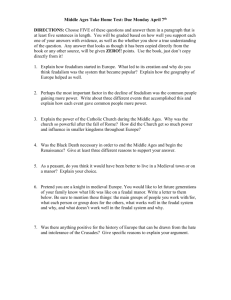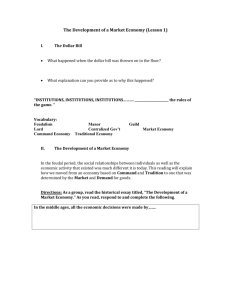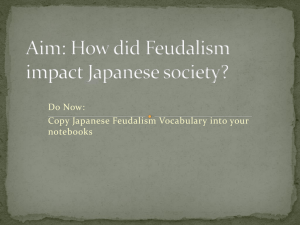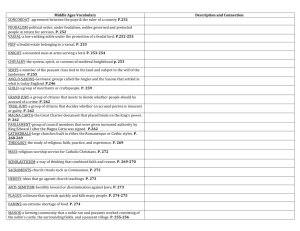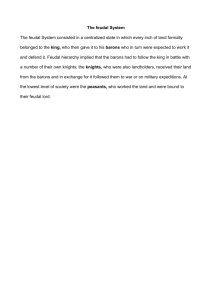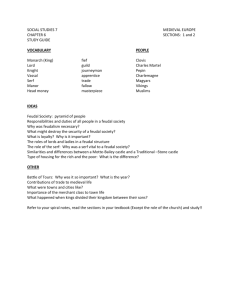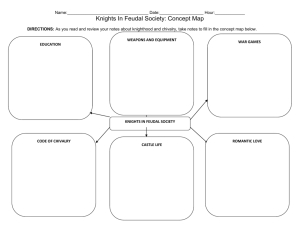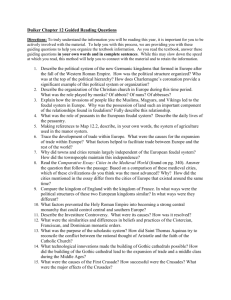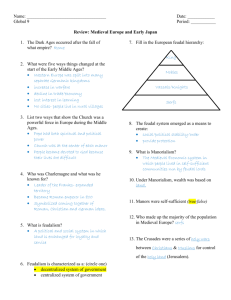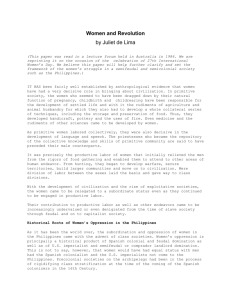Middle Ages – Feudalism I (revised)
advertisement
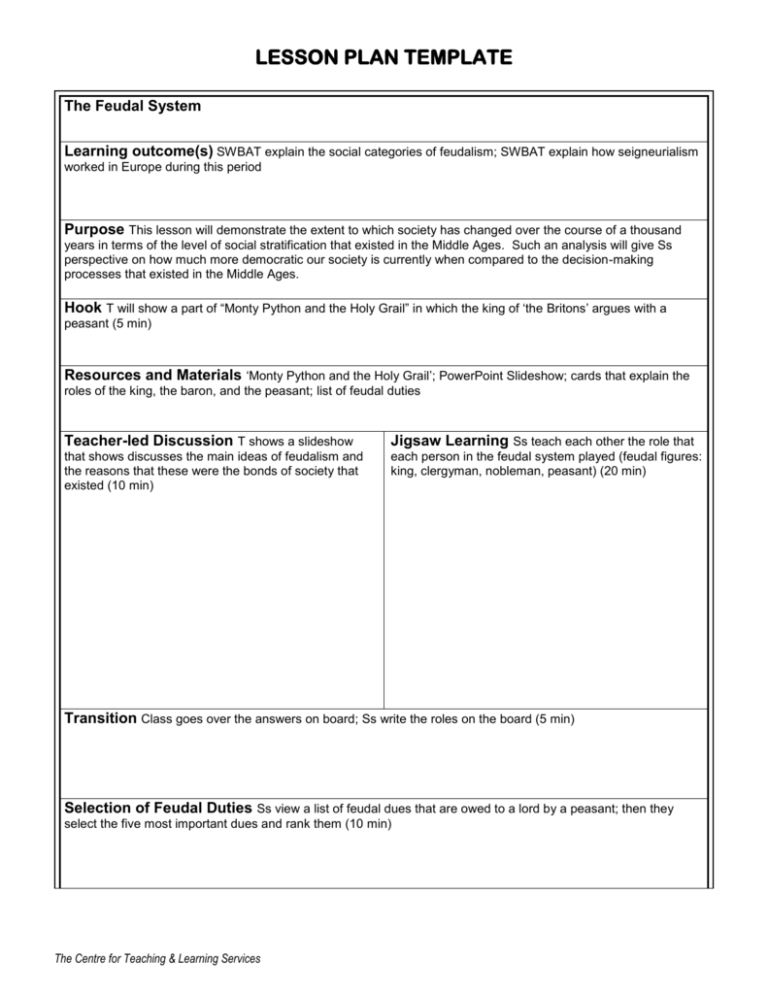
LESSON PLAN TEMPLATE The Feudal System Learning outcome(s) SWBAT explain the social categories of feudalism; SWBAT explain how seigneurialism worked in Europe during this period Purpose This lesson will demonstrate the extent to which society has changed over the course of a thousand years in terms of the level of social stratification that existed in the Middle Ages. Such an analysis will give Ss perspective on how much more democratic our society is currently when compared to the decision-making processes that existed in the Middle Ages. Hook T will show a part of “Monty Python and the Holy Grail” in which the king of ‘the Britons’ argues with a peasant (5 min) Resources and Materials ‘Monty Python and the Holy Grail’; PowerPoint Slideshow; cards that explain the roles of the king, the baron, and the peasant; list of feudal duties Teacher-led Discussion T shows a slideshow Jigsaw Learning Ss teach each other the role that that shows discusses the main ideas of feudalism and the reasons that these were the bonds of society that existed (10 min) each person in the feudal system played (feudal figures: king, clergyman, nobleman, peasant) (20 min) Transition Class goes over the answers on board; Ss write the roles on the board (5 min) Selection of Feudal Duties Ss view a list of feudal dues that are owed to a lord by a peasant; then they select the five most important dues and rank them (10 min) The Centre for Teaching & Learning Services LESSON PLAN TEMPLATE Proclamation of Feudal Duties Ss play the role of a lord who is announcing to the peasants of his estate the duties that are owed him and writes them down in a mock letter to the serfs (25 min) Closing Class goes over the more pertinent feudal duties and explains why these duties were so important to the economy of the estate; T writes ideas on board (8 min) Check for understanding CCQs will be used to assess what Ss are learning as they listen to my lecture on feudalism; Ss will show their understanding of the classes of the peasants and the aristocracy as they write down the roles of those respective groups in the transition Reflection (What went well? What might you change? How does this lesson relate to assignments/homework/readings) The Centre for Teaching & Learning Services
